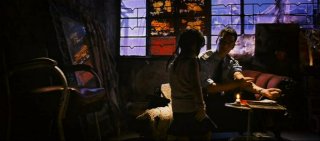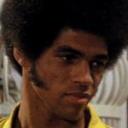Monday, March 31st, 2008
27th Hong Kong Film Awards Preview: Best Film
With the 27th Hong Kong Film Awards a little less than two weeks away, it’s time to start a series of blog posts breaking down the nominees in eight categories: Best Film, Best Director, Best Screenplay, Best Actor, Best Actress, Best Supporting Actor, Best Supporting Actress and Best New Actor. My knowledge of the “nuts and bolts” of filmmaking can be charitably described as perfunctory so I won’t be doing the technical categories.
Rather than save the top category for last, let’s start the proceedings with a bang by looking at the Best Film category. The nominees are:
THE WARLORDS
PROTEGE
THE POSTMODERN LIFE OF MY AUNT
THE MAD DETECTIVE
EYE IN THE SKY
Before ranking the five nominees, it bears mentioning that, had it qualified, Ang Lee’s LUST, CAUTION would be the prohibitive favourite. It outpaces all of the nominated films in production, acting and storytelling. While some would argue that LUST, CAUTION has its flaws, they are relatively minor compared to each of the nominees which are all notably flawed in some form or another.
5. THE POSTMODERN LIFE OF MY AUNT
Regular readers of this blog will know that I don’t have great affection for this film and was dismayed when it was named Best Film by the Hong Kong Film Critics Society. In preparation for this post, I watched the movie again to see if I could see what its supporters are seeing in the film. While I gained a new appreciation for its fine technical craftsmanship and can 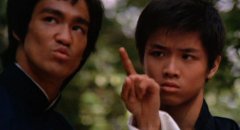 understand what the HKFCS was talking about when it lauded Ann Hui On-Wah’s “exquisite brushwork”, I still believe that the film lacks “emotional content”. It’s an skillful exhibition of acting and filmmaking but it leaves most viewers looking at the finger pointing to Moon instead of showing them the heavenly glory.
understand what the HKFCS was talking about when it lauded Ann Hui On-Wah’s “exquisite brushwork”, I still believe that the film lacks “emotional content”. It’s an skillful exhibition of acting and filmmaking but it leaves most viewers looking at the finger pointing to Moon instead of showing them the heavenly glory.
A comparison to last year’s HKFA Best Film, AFTER THIS OUR EXILE, is telling. Both offer a depressing narrative of a downward spiral but while AFTER THIS OUR EXILE paints an emotionally impactful portrait of the relationship between a father and son, THE POSTMODERN LIFE OF MY AUNT leaves most viewers cold. Minds register the cruelties of life that Ye Rutang endures but hearts are not touched. As a result, most viewers will look at the negative world-view of THE POSTMODERN LIFE OF MY AUNT and say: “Yeah, so?”
Definitely not the response that an award-winning film should elicit.
4. THE WARLORDS
Like THE POSTMODERN LIFE OF MY AUNT, THE WARLORDS features accomplished film technique but it has significant storytelling problems that keep it from serious consideration for the Best Film title. In its depiction of a fictionalized account of the August 22nd, 1870 assassination of provincial governor Ma Xin-Yi (馬新眙), the film needlessly complicates an oft-told tale that has customarily been presented as a simple wuxia fable about the nature of honour, brotherhood and betrayal. I may, for a future post, open a House Where Words Gather investigation on the history behind THE WARLORDS and get a copy of 《江湖奇俠傳》 (”Astonishing Tales of Jiangwu Heroes”) by Ping Jiang Bu Xiao Sheng (平江不肖生) — the early 20th Century book which details the story of the Ma Assassination. For now, I’ll just say that it’s my understanding that Ma was in government for personal fortune rather than the public good and that he obtained his high position by exploiting and betraying his “brothers” rather than through heroic military feats.
It is, then, puzzling that Peter Chan Ho-Sun and company chose to confuse viewers by introducing but not adequately explaining extraneous plot elements like the Taiping Rebellion, the role of Christianity in the conflict, the various political factions of the Qing government and the treachery of the Kui army. The film would have been much more effective had it concentrated on the relationship between the three sworn brothers and the familiar 偽君子 (ngai gwan ji or “false gentleman”) narrative of the Ma Xin-Yi based character. A story focused on honour and betrayal would have resonated deeply with viewers. Most people understand brotherhood, loyalty and duplicity. Very few people understand, or care about, the decline of the Qing Dynasty in the late-19th Century or the significance of Suzhou and Nanjing during the Taiping Rebellion.
Perhaps Peter Chan and his writers felt that they needed to add historical gravitas to justify the film’s billing as a “lavish epic made for multiple markets”. Perhaps they added the “I’m doing this for the good of the people” plot thread because they didn’t want Jet Li to play a full-on corrupt scumbag. Whatever the reason, award-winning films do not have the muddled storytelling found in THE WARLORDS.
I think that it’s appropriate for me to step aside here and let three of my “inner personalities” speak about the film:
Marcus Tullius Cicero from ROME: Immortals. Immortals, I say. In the years since Milkway Image was formed in 1997, Johnnie To  Kei-Fung and Wai Ka-Fai have carved their names deep in the eternal stone of Hong Kong culture. By delivering a stylish, fresh perspective on the crime genre in efforts like TOO MANY WAYS TO BE NO. 1 and THE ODD ONE DIES, they were a beacon of light during the creative darkness around the time of the Handover. They persevered through the Asian economic crisis and put out a series of enthralling little gems like THE LONGEST NITE, EXPECT THE UNEXPECTED and WHERE A GOOD MAN GOES. They earned well-deserved commercial success with popular works like RUNNING OUT OF TIME and NEEDING YOU. Since then, be it working together or working apart, they have sustained a level of excellence and have continued to provoke and entertain audiences with titles like RUNNING ON KARMA and ELECTION. THE MAD DETECTIVE is no exception. Once again, To and Wai continue to innovate by using a standard crime drama platform as a springboard to give insight into human nature. The Muses themselves could not have inspired a finer premise. Johnnie To and Wai Ka-Fai truly are heroes of Hong Kong Cinema.
Kei-Fung and Wai Ka-Fai have carved their names deep in the eternal stone of Hong Kong culture. By delivering a stylish, fresh perspective on the crime genre in efforts like TOO MANY WAYS TO BE NO. 1 and THE ODD ONE DIES, they were a beacon of light during the creative darkness around the time of the Handover. They persevered through the Asian economic crisis and put out a series of enthralling little gems like THE LONGEST NITE, EXPECT THE UNEXPECTED and WHERE A GOOD MAN GOES. They earned well-deserved commercial success with popular works like RUNNING OUT OF TIME and NEEDING YOU. Since then, be it working together or working apart, they have sustained a level of excellence and have continued to provoke and entertain audiences with titles like RUNNING ON KARMA and ELECTION. THE MAD DETECTIVE is no exception. Once again, To and Wai continue to innovate by using a standard crime drama platform as a springboard to give insight into human nature. The Muses themselves could not have inspired a finer premise. Johnnie To and Wai Ka-Fai truly are heroes of Hong Kong Cinema.
 Cameron the Terminator from TERMINATOR: THE SARAH CONNOR CHRONICLES: I can’t say that this movie is tight. I processed the film through my human psychology subroutine and it predicts that audience interest level will be high initially but will decrease considerably as the film progresses. I do not detect much substance in the premise beyond the “inner personality” concept and later events do not mesh cohesively with earlier events. I calculate that most humans will feel disappointment after watching the film because the expectations raised in the first part of the movie are not met in the second part.
Cameron the Terminator from TERMINATOR: THE SARAH CONNOR CHRONICLES: I can’t say that this movie is tight. I processed the film through my human psychology subroutine and it predicts that audience interest level will be high initially but will decrease considerably as the film progresses. I do not detect much substance in the premise beyond the “inner personality” concept and later events do not mesh cohesively with earlier events. I calculate that most humans will feel disappointment after watching the film because the expectations raised in the first part of the movie are not met in the second part.
Tamio Kageyama, deceased Japanese novelist and IRON CHEF judge: The film got my attention from the very first 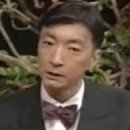 sequence when Lau Ching-Wan’s Inspector Bun solves a crime by having himself zipped inside a suitcase and kicked down a flight of stairs. A marvelous opening. I was intrigued further when it was revealed that Inspector Bun could see “inner personalities”. A very provocative idea. From that point on, I feel that the film didn’t take full advantage of these two creative constructs. The best of the Milkyway films have a well-developed foundation that builds to an explosive climax. Recall the gunfights at the ends of PTU and EXPECT THE UNEXPECTED, the tragedy at the end of RUNNING ON KARMA or the revelation at the end of ELECTION 2. By contrast, the concepts in THE MAD DETECTIVE feel under-developed. There is little depth to the Inspector Bun character beyond his eccentricity and the “inner personality” idea leads to an ending that goes “pop, pop, pop” like a string of Lunar New Year firecrackers rather than the “boom” of the better Milkyway titles. THE MAD DETECTIVE is a decent film with a remarkable premise but it doesn’t measure up to the standard of excellence that defines award-winning films.
sequence when Lau Ching-Wan’s Inspector Bun solves a crime by having himself zipped inside a suitcase and kicked down a flight of stairs. A marvelous opening. I was intrigued further when it was revealed that Inspector Bun could see “inner personalities”. A very provocative idea. From that point on, I feel that the film didn’t take full advantage of these two creative constructs. The best of the Milkyway films have a well-developed foundation that builds to an explosive climax. Recall the gunfights at the ends of PTU and EXPECT THE UNEXPECTED, the tragedy at the end of RUNNING ON KARMA or the revelation at the end of ELECTION 2. By contrast, the concepts in THE MAD DETECTIVE feel under-developed. There is little depth to the Inspector Bun character beyond his eccentricity and the “inner personality” idea leads to an ending that goes “pop, pop, pop” like a string of Lunar New Year firecrackers rather than the “boom” of the better Milkyway titles. THE MAD DETECTIVE is a decent film with a remarkable premise but it doesn’t measure up to the standard of excellence that defines award-winning films.
2. PROTEGE
When I was considering what to write about PROTEGE, I couldn’t help thinking of AMERICAN IDOL judge Randy Jackson because my general opinion of the film mirrors his standard line of criticism for the Idol contestants: “Yo dawg … I didn’t agree with some of the choices the film made but it was a’ight … kinda pitchy though … some parts of it were ‘off’ … but it was a’ight”.
because my general opinion of the film mirrors his standard line of criticism for the Idol contestants: “Yo dawg … I didn’t agree with some of the choices the film made but it was a’ight … kinda pitchy though … some parts of it were ‘off’ … but it was a’ight”.
Leading the way with 15 nominations, PROTEGE takes a sweeping look at the drug trade in Hong Kong. The film admirably details everything from the way the drug kingpin manages his operation to the efforts of the police to stop the illicit activity to the toll it takes on junkies and their loved ones. Unlike THE POSTMODERN LIFE OF MY AUNT, it also gets viewers to care about its characters be it the lonely undercover cop played by Daniel Wu or the ailing drug lord played by Andy Lau Tak-Wah. Some may argue that a pervasive anti-drug message taints the film but having seen my share of ham-fisted “very special episodes” of LAW & ORDER: SPECIAL VICTIMS UNIT, I didn’t find the “don’t do drugs” message cloying or intrusive.
The problem with the film is that it’s “pitchy”. It hits several notes that are off key. Leading the way is the Louis Koo character and his story arc. Koo’s junkie is more of a caricature than a character and his fate rings strikingly false in a film that is otherwise infused with realistic detail. Furthermore, one of PROTEGE’s dramatic crescendos — a police raid on a drug processing facility — is marred by two instances of unintentional comedy: the Wile E. Coyote-like downfall of one of the drug workers and Liu Kai-Chi breaking out his TVB physical comedy mannerisms at an inopportune time.
A “best film of the year” should be note perfect. It should move viewers with well-orchestrated rhythm and impeccably-controlled pitch and tone. PROTEGE is a commendable effort but it falls short.
In an earlier post, I wrote that EYE IN THE SKY was a solid film that had a thoroughly captivating first sixty minutes but a flawed, though not fatally so, final thirty minutes. Two months later, I stand by that assessment and, having compared it to its fellow nominees, feel that it should win the HKFA for Best Film. Admittedly, the ending relies too much upon coincidence but that’s a relatively small flaw when you consider the problems with the other Best Film nominees. I don’t think it is the best of the 2007 crop of films but it is the best in the group of the five nominated films.
I think EYE IN THE SKY has only an outside shot of winning the award. I suspect some voters may believe that it is too slight to be worthy of the best film title. I have a feeling that THE POSTMODERN LIFE OF MY AUNT will come away as the winner.
If this were the Republic of Sanneyistan Film Awards, then LUST, CAUTION would be declared Best Film of 2007 and HOOKED ON YOU and MR. CINEMA would get nominations instead of THE POSTMODERN LIFE OF MY AUNT and THE WARLORDS. Frankly, I’m surprised that two films celebrating HONG KONG didn’t get any attention in this category for the HONG KONG Film Awards. I can understand how some may feel that MR. CINEMA does not deserve consideration because of the way it totally sidestepped the events of June 4, 1989 but, surely, solid arguments can be made that it and HOOKED ON YOU were better films than THE WARLORDS. To me, the nomination for THE WARLORDS is based mostly on reputation and the billing of the film as a grand epic rather than actual merit. It’s like when a 38 year-old veteran gets selected to be play in an all-star game even though he hasn’t performed at an all-star level in years. THE WARLORDS is fine as entertainment but it doesn’t come close to being worthy of a best film nomination. I think a Western equivalent would be if the Academy nominated SPIDER-MAN 3 for the Best Film Oscar this past year. I put SPIDER-MAN 3 and THE WARLORDS in the same boat. They were both surrounded by a tremendous amount of buzz. They look great and sound great but both have storytelling problems and lack any real charm.
IMAGE CREDITS: Warner Brothers (ENTER THE DRAGON screen grab), HBO (ROME promotional graphic), Fox Broadcasting Company (Summer Glau, Randy Jackson), Fuji TV (Tamio Kageyama)


 he lives. Reportedly, Michelle Yeoh — Leong’s co-star in the Summer 2008 release
he lives. Reportedly, Michelle Yeoh — Leong’s co-star in the Summer 2008 release  the talent. Worse yet, a prospect can end up in a situation like
the talent. Worse yet, a prospect can end up in a situation like  I was going to call this feature “Sanney’s Mailbag” but I only received Congressional approval for an e-mail address this past weekend (
I was going to call this feature “Sanney’s Mailbag” but I only received Congressional approval for an e-mail address this past weekend (
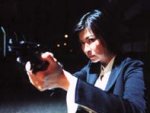 actual Edison Chen. I think you have to be very naive or very foolish if you don’t understand that there is a distinction between the public persona and the private person. Based on how he presents himself to the public eye, you’re entitled to have an opinion like Edison Chen™ is a poseur — a dopey, bad-boy wannabe who, if caught in a gunfight, would probably pull a
actual Edison Chen. I think you have to be very naive or very foolish if you don’t understand that there is a distinction between the public persona and the private person. Based on how he presents himself to the public eye, you’re entitled to have an opinion like Edison Chen™ is a poseur — a dopey, bad-boy wannabe who, if caught in a gunfight, would probably pull a  recently with someone about “legacy kids” (children of people who are rich, powerful or famous). This person, who shall remain nameless, hates George W. Bush with a passion and was trying to make the argument that, generally speaking, legacy kids grow up in a pampered environment so they don’t develop the skills that allow them to handle important positions when they are adults. I have to admit that I found the argument convincing until the person used Kim Jong-Il as another example of an “incompetent legacy kid”. It’s not that I think Kim Jong-Il is doing a bang-up job governing North Korea, it’s that the person I was talking to referred to Kim Jong-Il as Kim Jong II (Kim Jong The Second).
recently with someone about “legacy kids” (children of people who are rich, powerful or famous). This person, who shall remain nameless, hates George W. Bush with a passion and was trying to make the argument that, generally speaking, legacy kids grow up in a pampered environment so they don’t develop the skills that allow them to handle important positions when they are adults. I have to admit that I found the argument convincing until the person used Kim Jong-Il as another example of an “incompetent legacy kid”. It’s not that I think Kim Jong-Il is doing a bang-up job governing North Korea, it’s that the person I was talking to referred to Kim Jong-Il as Kim Jong II (Kim Jong The Second).
